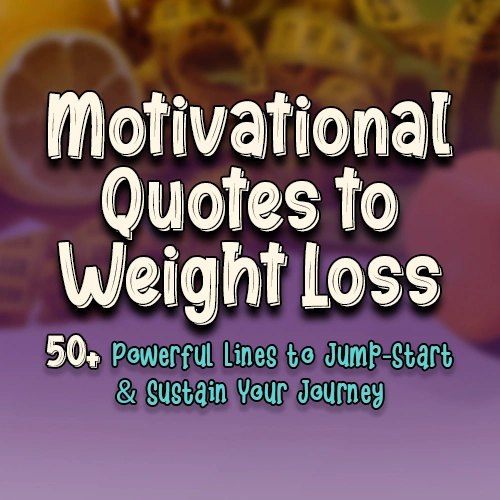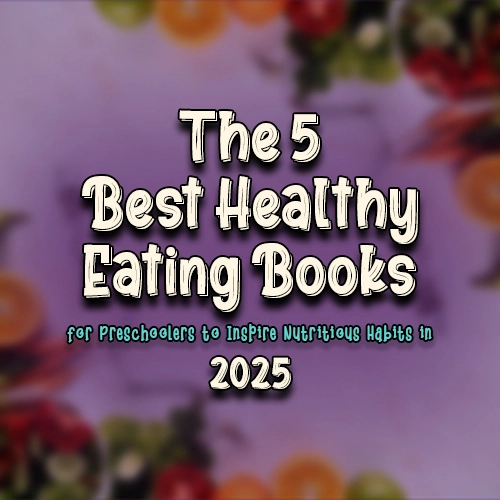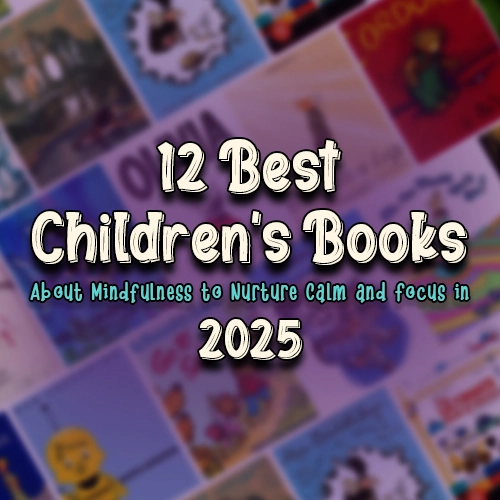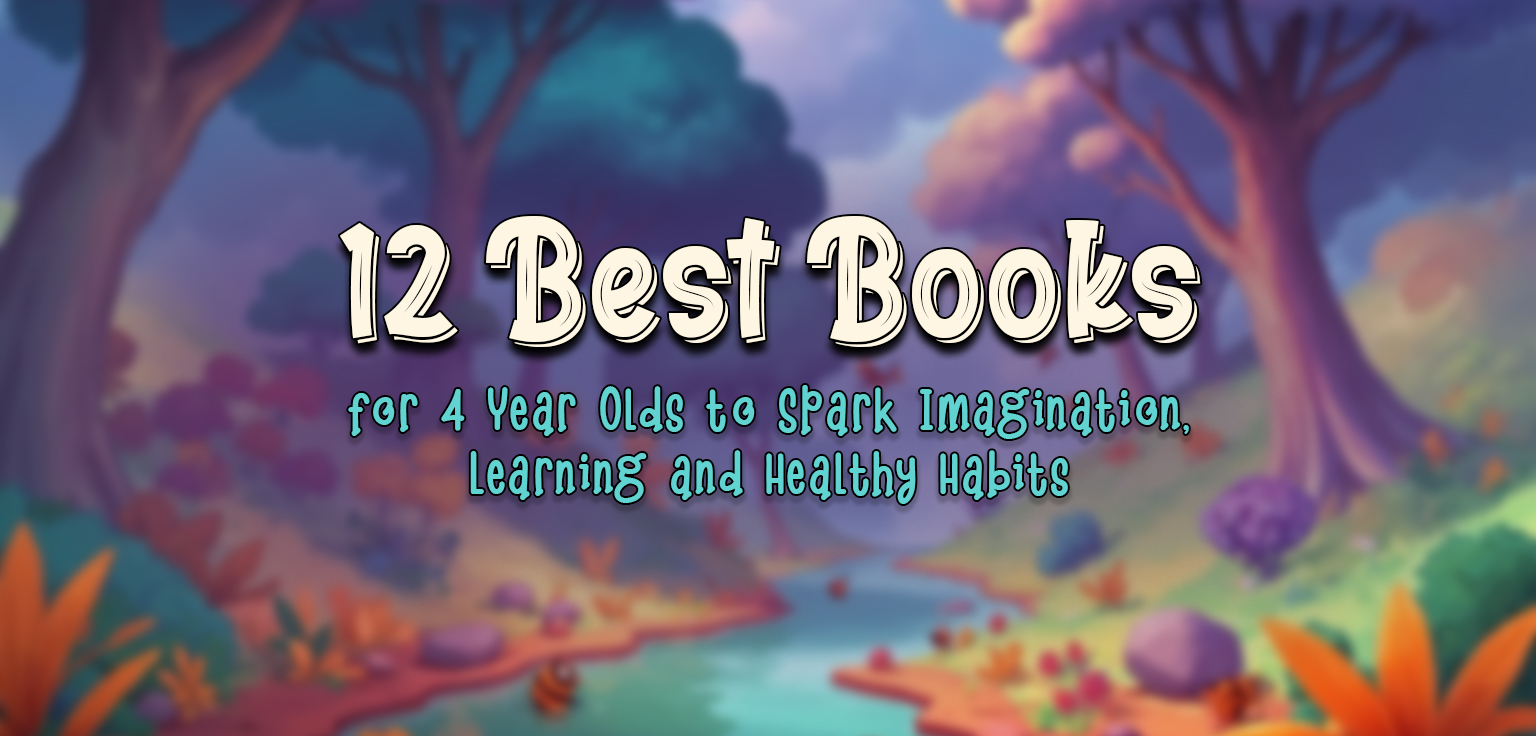What Are The Benefits Of Books On Healthy Eating For Kids? Find the Impact!

Making children aware of nutritious food choices early in life helps to lay the groundwork for their well-being throughout their lives. But how do you make these lessons attractive, useful, and fun? Well, by telling stories.
What are the benefits of healthy diet books for children? These vivid stories bring nutrition to life, making it relatable and applicable for children to understand the basic idea and incorporate it into their daily lives.
Table of Contents
- 6 Matchless Benefits Of Books On Healthy Eating For Kids
- 1. Sparks Early Awareness About Healthy Choices
- 2. Encourages Positive Food Relationships
- 3. Reinforces Healthy Eating Habits Through Repetition
- 4. Creates Opportunities for Parent-Child Conversations
- 5. It Makes Learning About Nutrition Fun and Interactive
- 6. Helps Prevent Unhealthy Eating Patterns
- Bottom Line
6 Matchless Benefits Of Books On Healthy Eating For Kids
Books have an impact on a child’s mind, and they are especially instrumental in providing knowledge on nutrition. Through exciting stories and entertaining characters, children will naturally and amusingly learn how to behave better regarding healthier food choices.
1. Sparks Early Awareness About Healthy Choices
Children learn better with stories in which their imagination has taken a leap. A well-written book about food and health for young readers introduces the idea of eating balanced food in a fun-to-read way through the colorful illustrations, characters they can relate to, and the interesting storyline. Maple makes them realize the way food influences their development, energy level, and overall health.
With these representations of characters who get strong after eating healthy foods or become lazy after consuming too much sugar, food associations will start to trigger real-life consequences. This early awareness will help them do the right thing when it comes to their food consumption.
2. Encourages Positive Food Relationships
Presenting food in a certain way to children can go to great lengths in regards to how they are going to take it. Books that illustrate healthy foods as fun, delectable, and mighty can instill a positive attitude towards food habits by the kids. Vegetables will no longer be what ‘the kids have to eat’ but will be an essential means to grow strong and become active.
The famous author, Haifa Hamdi is very well aware of how important it is to make nutrition fun and engaging for younger audiences in such a way that there is a direct integration into captivating narratives. Enjoy the taste, texture, and goodness of healthy foods for kids without this showing pressure.
3. Reinforces Healthy Eating Habits Through Repetition
Repetition is one of the surest ways of inculcating good habits in children. Reading books about healthy eating will regularly reinforce key messages about nutrition. The more children hear about the benefits of fruits, vegetables, and whole grains, the more it becomes second nature for them to choose these options in real life.
Books also help in normalizing healthy habits. When the characters they love are shown having healthy meals, it makes it easier for them to copy that behavior. Gradually, as they experience more and more food-related literature and stories, they reinforce the idea of healthy choices that are now available to them, which now become self-willed healthy choices
4. Creates Opportunities for Parent-Child Conversations
Books about nutrition are not just for children; they also forge conversations for their parents and caregivers. Sharing a reading session can elicit discussions about food choices and provide a question-and-answer atmosphere, reinforcing healthy habits in the minds of children without much pressure. Instead of making mealtimes a battlefield, books create a more casual and positive discussion about nutrition.
One truly Inspiring Author Of Imaginative Stories On Nutrition creates books that allow for meaningful discussions and give parents a truly joyful opportunity to help their kids eat a balanced diet while teaching them.
5. It Makes Learning About Nutrition Fun and Interactive
To many children, learning is usually a hands-on affair, and the interactive book, if any, makes it even more effective for nutrition education. Fun recipes, interesting food challenges, or activities to explore various food groups can set kids up for learning engagement.
This reflects the most inspirational book on food and health education for young readers; not a photograph in print is merely reading; it’s engaging action. They are much more likely to consider nutrition as part of their lifestyles when children read about having fun with trying new food, creating their health plates, or even growing their fruits and vegetables.
6. Helps Prevent Unhealthy Eating Patterns
Long-term considerations make it clear that one of the best practices of nutrition-based literature is its contribution to the prevention of unhealthy eating habits. Most children are brought up with advertisements glamorizing sugary snacks and processed foods; hence, the literature that emphasizes balance and moderation offers a counterattack against such forces.
With appropriate storytelling, children are made aware that treats are okay sometimes, but their bodies feel excellent and strong when nourished with healthy foods. These books will help in the gradual development of children’s instinctive ability to comprehend portion sizes, variety of food, and conscious eating behaviors.
Bottom Line
Still wondering what are the benefits of healthy eating books for kids? They pique curiosity, inform, and create an early positive food relationship for children. If the story is engaging, nutrition can readily become a grand adventure for children to taste making smart food choices that would set them up for life.
Choosing the right words, especially from an authoritative set of hands, often cements a child’s perspective on nutrition. As much as possible, interesting storylines, relatable characters, and interactive learning help make books effective agents for the nurture of future young eaters.
Created By: Dr. Haifa Hamdi
Recommended Blogs
 Blogs
Blogs Motivational Quotes to Weight Loss: 50+ Powerful Lines to Jump-Start & Sustain Your Journey
Motivational Quotes to Weight Loss: 50+ Powerful Lines to Jump-Start & Sustain Your Journey Starting a weight-loss journey is never...
 Blogs
Blogs The 5 Best Healthy Eating Books for Preschoolers to Inspire Nutritious Habits in 2025
The 5 Best Healthy Eating Books for Preschoolers to Inspire Nutritious Habits in 2025 If you’ve ever struggled to get...
 Blogs
Blogs 12 Best Children’s Books About Mindfulness to Nurture Calm and Focus in 2025
12 Best Children’s Books About Mindfulness to Nurture Calm and Focus in 2025 Helping children find moments of quiet in...
 Blogs
Blogs 12 Best Books for 4 Year Olds to Spark Imagination, Learning and Healthy Habits
12 Best Books for 4 Year Olds to Spark Imagination, Learning and Healthy Habits 12 Best Books for 4 Year...
 Blogs
Blogs Signs That You Have Picked the Best Children’s Book About Healthy Diet And Nutrition!
Signs That You Have Picked the Best Children’s Book About Healthy Diet And Nutrition! Introducing children to the importance of...
 Blogs
Blogs What Are The Benefits Of Books On Healthy Eating For Kids? Find the Impact!
What Are The Benefits Of Books On Healthy Eating For Kids? Find the Impact! Making children aware of nutritious food...